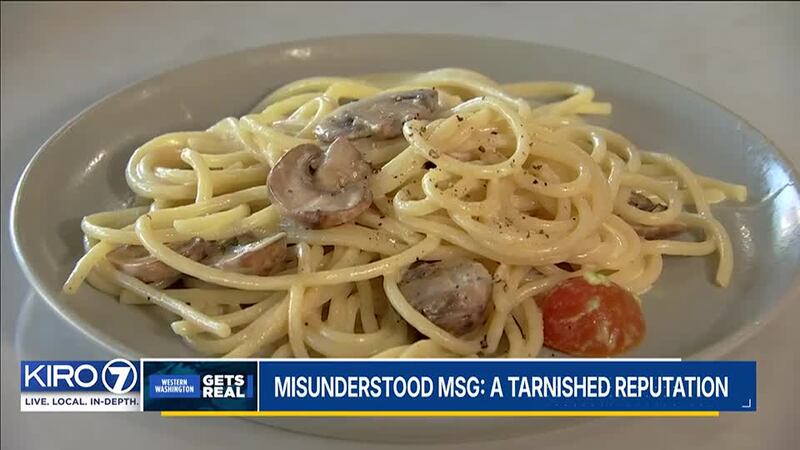SEATTLE — Health professionals have long debunked claims vilifying monosodium glutamate, or MSG, but misunderstandings and myths remain. Now, a coalition of cookbook authors, chefs, influencers and more are leading an effort to address what they say is one of the root causes.
“I sometimes feel afraid to use MSG on my content because it’s so public,” said Kat Lieu, cookbook author and online food content creator.
Distrust around MSG grew in the late 1960s after the New England Journal of Medicine published a letter, in which the author suggested it could be one of the reasons he experienced strange symptoms after eating at Chinese restaurants. The letter was published under the headline, “Chinese Restaurant Syndrome.”
The coalition is now pushing the journal to reconsider its use of the term.
Experts have dispelled myths that MSG is dangerous, but the impacts remain.
“It’s been half a century now, but we still treat Chinese food like it’s unhealthy or dirty,” Lieu said, who is half Chinese.
MSG is a flavor enhancer, but it also occurs naturally in foods like tomatoes, mushrooms, and cheese. It’s also found in many processed foods like lunch meats and frozen pizzas.
The FDA considers the addition of MSG to foods as “generally recognized as safe.”
“They’re probably eating it all day long and not even being aware of it,” said Judy Simon, a clinic dietitian at the University of Washington Medical Center.
According to the FDA, while some may believe they are sensitive to the ingredient, studies have been inconclusive.
For the small group of those who report sensitivities, Simon said symptoms are usually cleared within 30 to 60 minutes.
“They don’t have to take medication,” she said. “They don’t have to go to the doctor.”
Simon said she considers MSG like “another spice in the spice rack” that occurs naturally.
In fact, she says people can use MSG to cut their sodium intake.
“They have done studies that with monosodium glutamate being used as a flavor enhancer,” she said. “People can actually use less sodium in their meal.”
Despite the evidence, many people still actively avoid the ingredient.
In a study conducted by the Ajinomoto Group, a producer of MSG, 26% of respondents reported avoiding restaurants that used MSG. 20% of respondents said they avoided Chinese food entirely due to concerns about MSG.
“We don’t hear Italian restaurant syndrome. We don’t hear French restaurant syndrome,” Lieu said. “When you vilify an ingredient that’s tied to Chinese food and Chinese restaurants, then you also vilify the people.”
Lieu is hoping the journal takes note of the effort.
“We just want to have them finally close this chapter on “Chinese Restaurant Syndrome” because it has caused decades of mistrust and hurt,” she said.
Lieu knows there is still more work to be done, including having more conversations about it and showing its uses more frequently online.
“It’s not toxic,” she said. “My food is not poison.”
©2024 Cox Media Group








